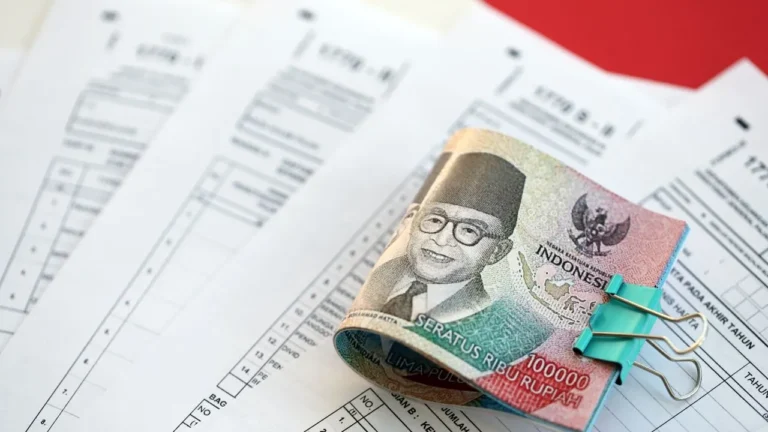Table of Contents
ToggleAs a global financial hub and gateway to Asia, Hong Kong remains a prime destination for entrepreneurs and investors aiming to establish businesses. In this article, we serve a comprehensive guide on how to open a business in Hong Kong, highlighting its appeal due to a straightforward tax regime, robust legal system, and strategic location.
We detail the various business structures available, including Limited Liability Companies (LLC), Sole Proprietorships, and Partnerships, emphasizing their unique features regarding liability, management flexibility, and taxation.
Furthermore, we also outline the streamlined company incorporation process, covering essential steps like name selection, Articles of Association preparation, and registration with the Companies Registry, along with crucial additional requirements like a registered office address and company secretary.
Finally, we explain Hong Kong’s attractive tax system, noting the 0% tax for offshore companies and competitive rates for inshore companies, including the absence of capital gains and dividend taxes.
With a strong reputation built over the past years, ILA Global Consulting has helped countless international clients legally set up businesses in Asia, including Hong Kong. We assist with document compilation and ensure full compliance with local laws and regulations.
Our team combines deep local knowledge with international best practices, ensuring that every solution is both compliant and strategic. With a proven track record, clear communication, and a client-focused approach, ILA Global Consulting has become a trusted advisor for individuals and businesses looking to establish a strong, sustainable presence in Hong Kong.
How to Choose the Right Business Structure in Hong Kong?

Limited Liability Company (LLC)
The Limited Liability Company (LLC) has become a popular choice for many entrepreneurs due to its unique blend of liability protection and operational flexibility.
- Shareholder Protection: One of the most significant advantages of an LLC is that it shields the personal assets of its owners (members) from the business’s debts and liabilities. This means that if the business faces legal action or financial distress, the members’ personal assets, such as their homes, cars, and personal savings, are generally protected. The company limits its liability to the amount it’s invested.
- Flexibility in Management: Unlike corporations, LLCs offer significant flexibility in their management structure. Members can choose to manage the LLC themselves (member-managed) or designate a third party (manager-managed). This adaptability makes it suitable for businesses of varying sizes and complexities.
- Taxation Options: LLCs typically function as ‘pass-through’ entities for tax purposes. This means that the business itself does not pay corporate income tax; instead, profits and losses flow directly to the owners’ personal income tax returns. This avoids the ‘double taxation’ that C-corporations can experience (where the corporation and its shareholders both pay taxes). LLCs can elect to be taxed as a sole proprietorship, partnership, S-corporation, or C-corporation, providing considerable tax planning opportunities.
- Ease of Formation: While requiring more formalities than a sole proprietorship, forming an LLC is generally simpler and less burdensome than forming a corporation. It involves filing articles of organization with the relevant state authority and creating an operating agreement.
Sole Proprietorship
The Sole Proprietorship is the simplest and most common business structure, particularly for individuals starting a new venture with minimal risk or capital.
- Ease of Formation: Forming a sole proprietorship is incredibly straightforward, often requiring little more than obtaining any necessary local licenses or permits. There’s no formal legal separation between the owner and the business.
- Direct Taxation: Profits and losses are reported directly on the owner’s personal income tax return (Schedule C). There’s no separate business tax filing.
- Unlimited Personal Liability: The primary drawback of a sole proprietorship is that there is no legal distinction between the owner and the business. This means the owner is personally responsible for all business debts, liabilities, and legal obligations. Personal assets are not protected from business claims.
- Difficulty in Raising Capital: Due to the unlimited liability and single-owner structure, sole proprietorships often find it more challenging to secure significant financing from investors or traditional lenders compared to more formal business structures.
Partnership
A Partnership is a business structure where two or more individuals agree to jointly manage and operate a business, sharing in its profits or losses. Partnerships are ideal when multiple individuals want to combine their skills, resources, and capital.
- General Partnership (GP): All partners share in the management and profits, and importantly, each partner has unlimited personal liability for the business’s debts and obligations. This means one partner’s actions can create liability for all other partners.
- Limited Partnership (LP): Consists of at least one general partner (with unlimited liability and management control) and one or more limited partners (with liability limited to their investment and no management control).
- Limited Liability Partnership (LLP): Often used by professional services firms (e.g., lawyers, accountants). In an LLP, all partners have some level of limited liability, typically protecting them from the liabilities arising from the negligence or misconduct of other partners. However, partners remain personally liable for their own professional negligence.
The first one, LLC, is the most common structure chosen in order to limit the risks.
Terms Related to Business Structure in Hong Kong
| Term | Definition |
|---|---|
| Limited Liability Company (LLC) | A popular business structure offering liability protection, shielding owners’ personal assets from business debts and liabilities. It provides management flexibility and various taxation options (often “pass-through”). |
| Pass-Through Entity | A taxation method where the business itself does not pay corporate income tax. Instead, profits and losses are “passed through” to the owners’ personal income tax returns, avoiding double taxation. |
| Double Taxation | A tax scenario where profits are taxed at the corporate level and again when distributed to shareholders as dividends. LLCs can often avoid this. |
| Sole Proprietorship | The simplest business structure where there is no legal distinction between the owner and the business. Easy to form and with direct taxation, but carries unlimited personal liability. |
| General Partnership (GP) | A type of partnership where all partners share in management, profits, and crucially, each partner has unlimited personal liability for the business’s debts and obligations. |
| Limited Partnership (LP) | A partnership structure consisting of at least one general partner (with unlimited liability and management control) and one or more limited partners (whose liability is limited to their investment and who have no management control). |
| Limited Liability Partnership (LLP) | A partnership structure where all partners have some level of limited liability, typically protecting them from liabilities arising from the negligence or misconduct of other partners, though they remain liable for their own professional negligence. |
Registering a Company in Hong Kong Has Never Been Easier
Setting up a business abroad can be challenging with so many documents, laws, and regulations to consider. Luckily, the process will be a breeze, and we’ll give you expert advice on which business structure and setup will fit your needs.
Reach out to the ILA team today to set up a free consultation or read more about the company registration process.
How is the Incorporation Process of Business in Hong Kong?

Opening a company in Hong Kong is a streamlined process. The journey involves several critical steps, each requiring careful attention to detail to ensure a smooth and successful registration.
1. Company Name Selection
This initial step is more than just choosing a catchy name; it’s about compliance and uniqueness. The chosen company name must be distinct from any existing registered company names in Hong Kong to avoid rejection by the Companies Registry.
It’s advisable to have a few alternative names ready in case the primary choice is unavailable. Additionally, there are specific naming conventions and restrictions to adhere to, such as avoiding names that imply government affiliation or certain regulated activities without proper licensing. A thorough search of the Companies Registry database is crucial at this stage.
2. Articles of Association (A&A) Preparation
The Articles of Association serve as the constitutional document of the company, laying down the fundamental rules for its internal management and operation. This legally binding document outlines the company’s objectives, the rights and duties of its members (shareholders), the powers of its directors, and the procedures for various corporate actions such as share issuance, transfer of shares, general meetings, and board meetings.
While you can adopt a standard set of Articles, you should often customize them to reflect the specific needs and governance structure of the new company, especially for businesses with multiple shareholders or complex management arrangements.
3. Registration with Companies Registry
This is the formal submission phase where all the prepared documentation is presented to the Hong Kong Companies Registry. The required documents typically include the completed incorporation form (Form NNC1 for a company limited by shares), a copy of the Articles of Association, and the identification documents of the proposed directors and shareholders.
Alongside the submission, the prescribed registration fees must be paid. The Companies Registry reviews these documents to ensure they meet all legal requirements. If all conditions are satisfied, a Certificate of Incorporation is issued, officially recognizing the company as a legal entity.
4. Timeline for Incorporation
One of Hong Kong’s attractive features is the efficiency of its company registration process. Typically, incorporation can be completed within 5 to 7 business days from the date of submission, assuming all documentation is in order and no complications arise.
This relatively quick turnaround time allows businesses to become operational swiftly, facilitating faster market entry and business development.
5. Registered Office Address
A physical address in Hong Kong is a mandatory requirement for the company’s official correspondence and serves as the primary point of contact for government agencies and legal notices. This address must be a genuine physical location and not merely a P.O. Box.
It’s crucial for maintaining transparency and ensuring that the company can receive and respond to official communications promptly. Many service providers offer registered office address services for businesses that don’t have a physical presence in Hong Kong.
6. Company Secretary
Every Hong Kong company is legally obligated to appoint a company secretary. This individual or corporate entity plays a vital role in ensuring the company’s adherence to all statutory requirements under the Companies Ordinance.
The company secretary is responsible for maintaining the company’s statutory registers, preparing and filing annual returns, organizing board meetings, and generally advising the directors on corporate governance matters. If an individual is appointed, they must ordinarily reside in Hong Kong. If a body corporate is appointed, its registered office or place of business must be in Hong Kong.
7. Share Capital
The initial share capital should be clearly defined during the incorporation process. This declared amount represents the company’s authorized capital, and the shares can be issued to shareholders at any value.
Although the actual amount of share capital can be as low as HK$1, it’s important to consider what level of share capital best reflects the company’s initial funding needs and its perceived financial stability. The share capital also dictates the ownership structure and the initial investment by shareholders.
8. Business Registration Certificate
Upon successful incorporation, the Inland Revenue Department (IRD) issues a separate and equally crucial document, the Business Registration Certificate (BRC). The IRD does not issue this certificate concurrently with the Certificate of Incorporation but follows shortly after.
The BRC is essential for tax compliance purposes and serves as proof of the company’s registration with the tax authorities. The validity period of the BRC is typically one year or three years, and it requires renewal before its expiry to ensure continuous tax compliance. Operating without a valid BRC can result in penalties and legal consequences.
Terms Related to Incorporation Process of Business in Hong Kong
| Term | Definition |
|---|---|
| Articles of Association (A&A) | The foundational constitutional document of a Hong Kong company, outlining its internal management rules, objectives, shareholder rights, director powers, and procedures for corporate actions. |
| Form NNC1 | The specific incorporation form used for companies limited by shares in Hong Kong, submitted to the Companies Registry with other required documents. |
| Certificate of Incorporation | The official document issued by the Companies Registry upon successful registration, legally recognizing the company as a distinct entity in Hong Kong. |
| Business Registration Certificate (BRC) | A crucial document issued by the Inland Revenue Department (IRD) after incorporation, essential for tax compliance and proof of tax authority registration. Requires periodic renewal. |
| Inland Revenue Department (IRD) | The Hong Kong government department responsible for administering tax laws and collecting taxes and duties. |
What is the Tax Rate for Companies in Hong Kong?
Hong Kong’s reputation as a global financial hub significantly has an attractive tax system taxing the income of offshore companies at 0%. For an inshore company, Hong Kong taxes the first HKD 2 million of assessable profits at a highly competitive rate of 8.25%. Any assessable profits exceeding this threshold are then subject to a rate of 16.5%.
This progressive structure is particularly beneficial for small and medium-sized enterprises (SMEs) and start-ups, allowing them to retain a larger portion of their initial earnings for reinvestment and growth, while still offering a reasonable rate for larger corporations.
In both scenarios, there are no Capital Gains Taxes and no Dividend Taxes. The absence of capital gains tax means that profits derived from the sale of assets, such as shares or property, are not subject to additional taxation, encouraging investment and asset management within the SAR.
Similarly, the absence of dividend tax means that Hong Kong does not tax profits distributed to shareholders at the individual or corporate level, making it an attractive location for holding companies and for investors seeking to maximize their returns. For expert assistance customized to your specific business goals, contact ILA Global Consulting today.























